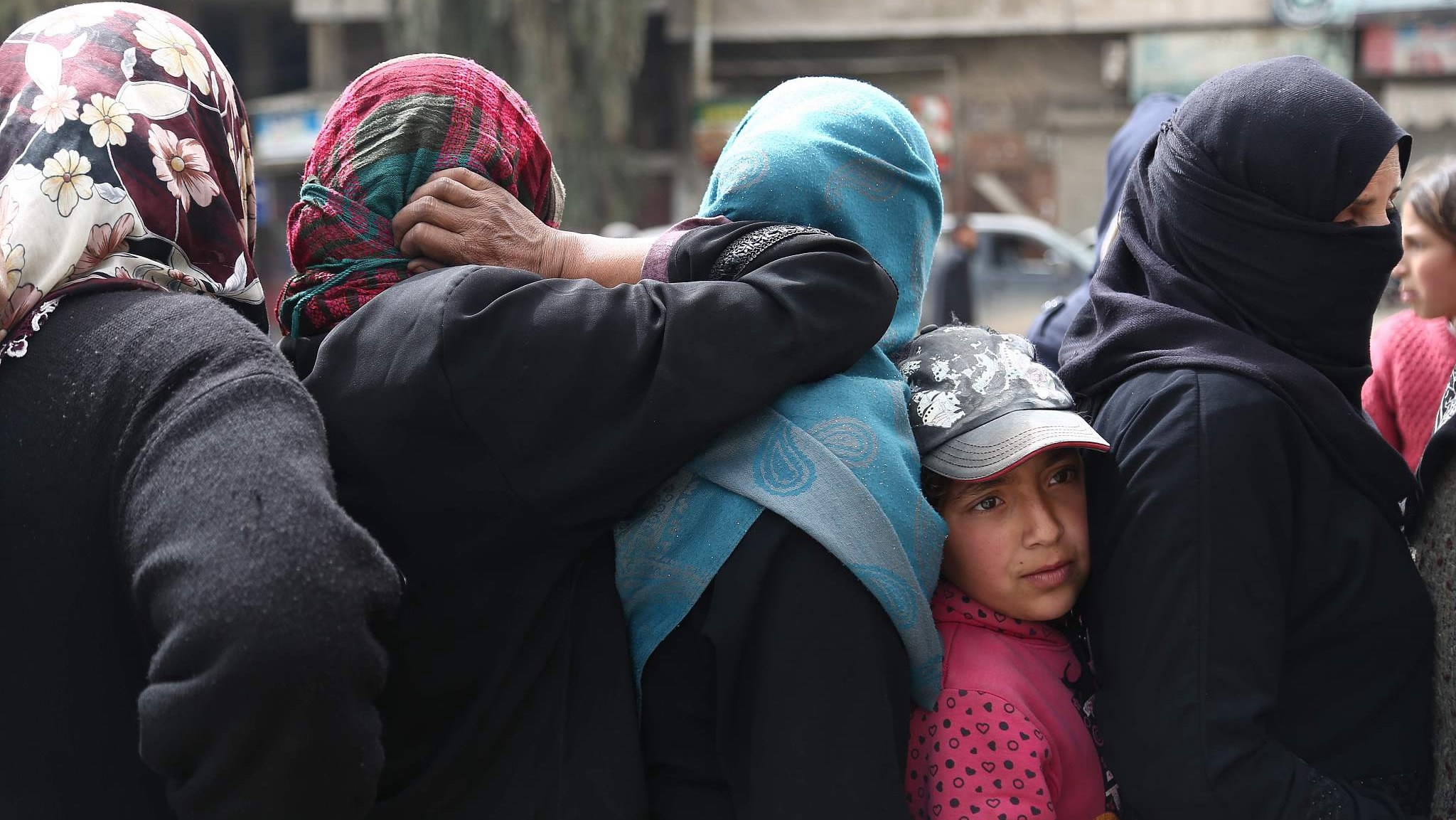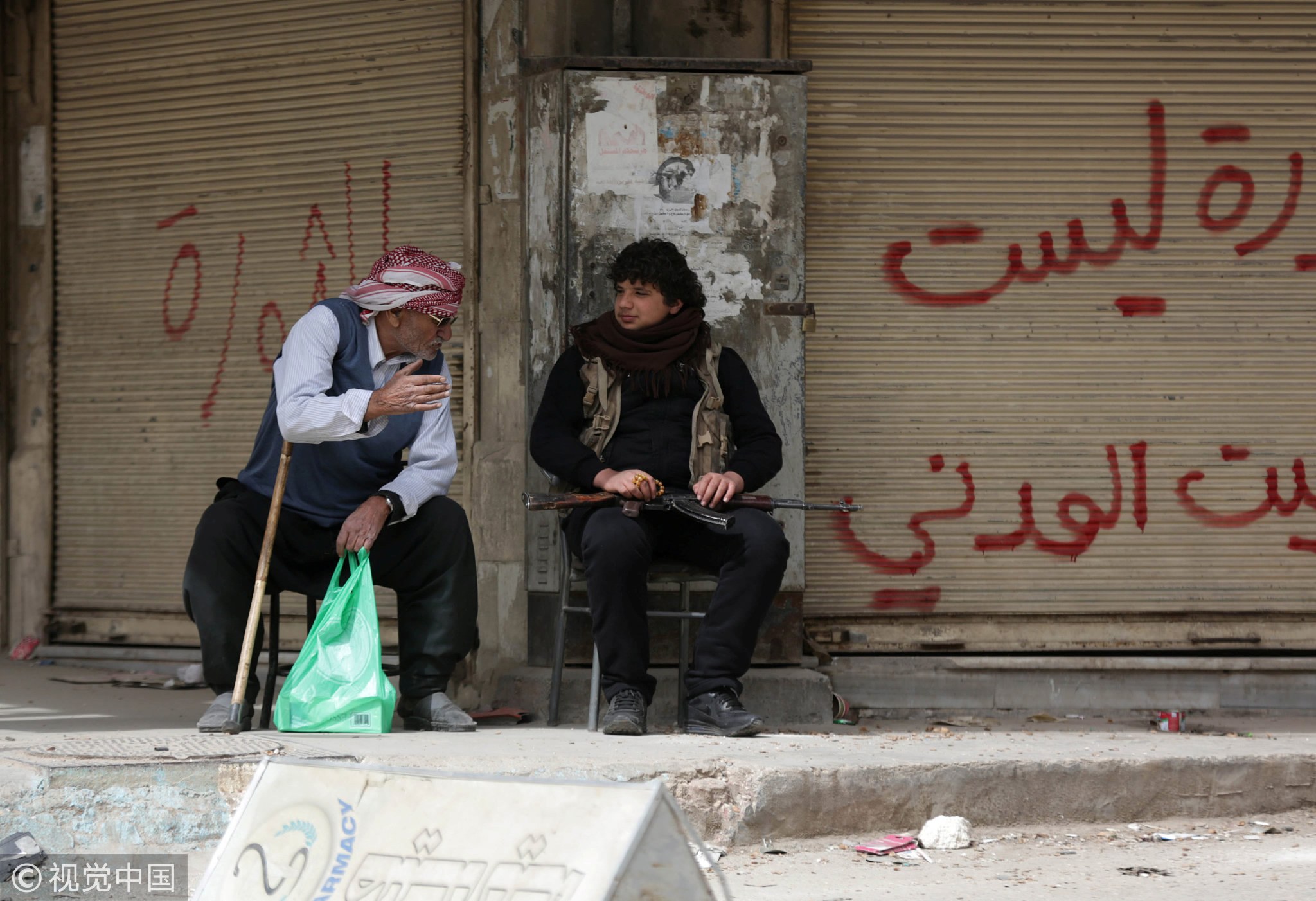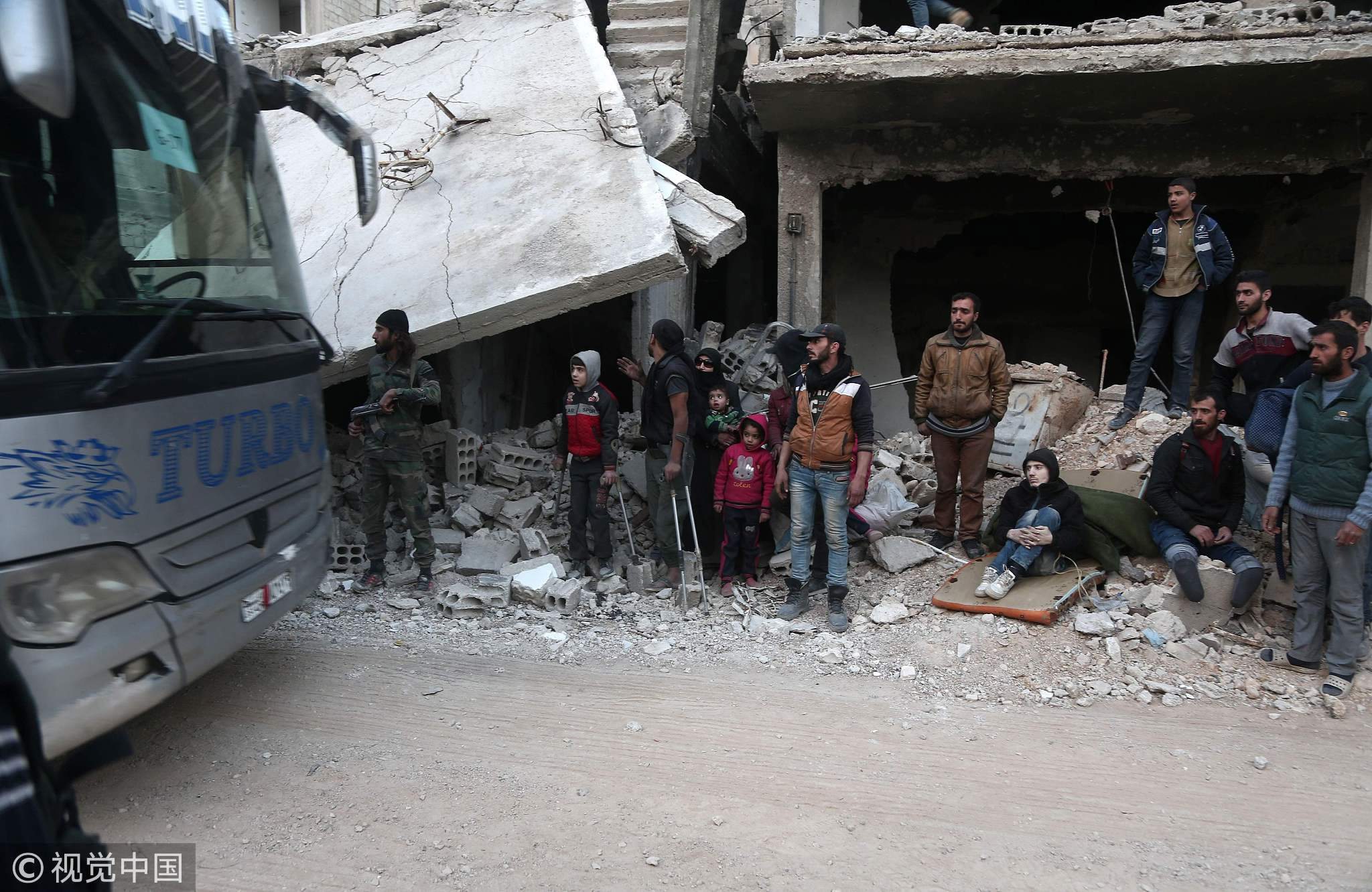
Opinions
13:48, 25-Mar-2018
Opinion: Is the fall of Afrin a turning point for Kurdish nationalism?
Guest commentary by Wang Jin

Last week, the Syrian opposition group Free Syria Army, backed by Turkish troops, entered Afrin, a major city for Syrian Kurds in northern Syria, and hoisted their flag on top of city hall. The date, March 18, also marked the anniversary of the Ottoman victory against Allied forces in Gallipoli over a hundred years ago in 1915. The Free Syria Army pillaged Afrin and forced the Kurdish People’s Protection Units (YPG) – the defenders of city led by Kurdish Democratic Union Party (PYD) – to withdraw from the city after a nearly two-month resistance.
Since 2014, the PYD has enjoyed the support of the US in the fight against the ISIL, but its leadership later realized that international and regional powers have “sold” the city of Afrin to Turkey. Although Turkish military forces entered the Syrian territory to fight against “terrorists” in violation of Syrian sovereignty, the Turkish military offensive against Afrin has developed into a humanitarian crisis for both Kurds and other minorities in and around Afrin.
Although the PYD and its Kurdish militants resisted both Turkish forces and other Syrian rebels, including many Islamic extremists that could be labeled as “Islamic terrorists,” for more than two months in the narrow Afrin enclave, PYD and Syrian Kurds still ended up on the losing side.

A man gestures as he sits next to a Turkish-backed Free Syrian Army fighter in the center of Afrin, Syria, March 24, 2018. /VCG Photo
A man gestures as he sits next to a Turkish-backed Free Syrian Army fighter in the center of Afrin, Syria, March 24, 2018. /VCG Photo
In actuality, both global and local powers will in no way allow any change to the existing boundaries in the Middle East landscape, which the PYD leaders should recognize. History proved it when Iraqi Kurds met their Waterloo last September when a referendum, which voted overwhelmingly for independence, was rejected by the federal Iraqi government and the Kurds were unable to do anything about it.
The PYD and Syrian Kurds also realize that Kurds remain an important poker chip among international and regional powers. Russia gave up their support and protection to Kurds in Afrin after the pressure from Turkey, while the US and Iran largely kept silent. Neither Russia nor the US would support a change in Syria’s territorial make-up, or go out of their way to protect whatever autonomy the Kurds hope to enjoy. More importantly, no international and regional power will risk its relations with Turkey for the PYD.
Washington has relied on the PYD and Syrian Kurds in the fight against ISIL. US military bases and soldiers are stationed in areas under YPG control in northeastern Syria. Syrian Kurds have also received US arms and funding to continue their fight against ISIL. Russia also viewed Syrian Kurds as a reliable partner in its counter-terrorism campaign across Syria and an important player in the country's political reconstruction. Syrian Kurds’ fighting against ISIL has gained enormous admiration from the international community. However, such popular sympathies have not been transformed into substantial support to help Kurds in Syria.

People walk through debris in the center of Afrin, Syria, March 24, 2018. /VCG Photo
People walk through debris in the center of Afrin, Syria, March 24, 2018. /VCG Photo
Kurds in Syria long for autonomy, and they hope to transform Syria into a “decentralized” state with political and social equality among different ethnic groups. Nonetheless, if the PYD-held areas are still under military threat from Turkey and rebel groups, and the party leaders are excluded from peace talks in Geneva, it is difficult to see how Kurdish aspirations and political demands will be raised, let alone met.
However, we should not forget that nationalism grows not only from military victories, but also from collective suffering and political failures. When Afrin falls, the national sentiment of Kurds not only in Syria, but also in Turkey and Iraq, will rise and become an important part for the future of Kurdish political nationalism.
(The author is a PhD candidate of the School of Political Science at University of Haifa, and a research fellow of the Syria Research Center at Northwest University. The article reflects the author's opinion, and not necessarily the views of CGTN.)

SITEMAP
Copyright © 2018 CGTN. Beijing ICP prepared NO.16065310-3
Copyright © 2018 CGTN. Beijing ICP prepared NO.16065310-3